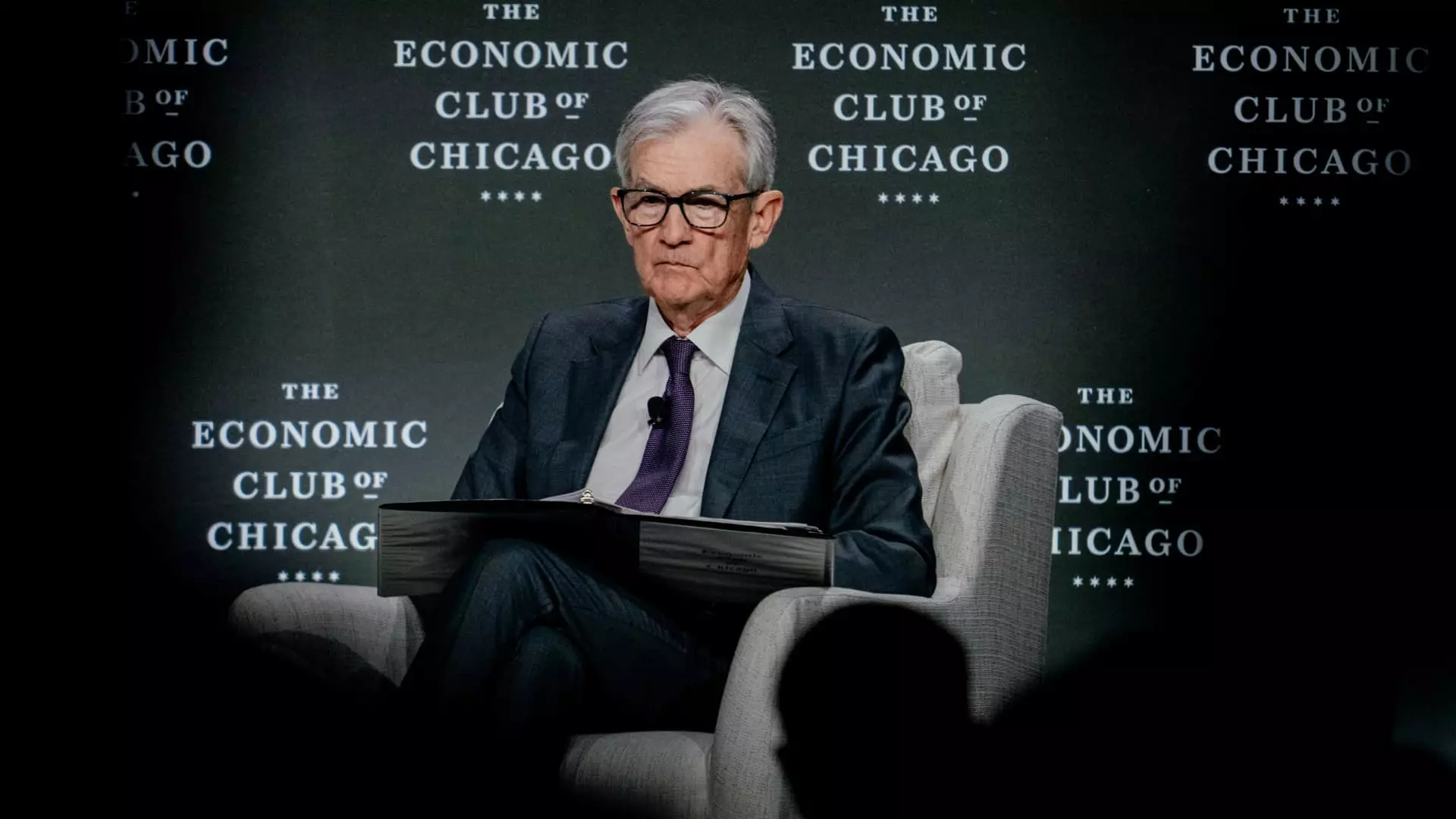In a startling display of audacity, President Donald Trump unleashed scathing remarks aimed at Jerome Powell, the Federal Reserve Chairman he appointed himself. Calling Powell a “major loser” on his platform Truth Social is not just an amusing soundbite; it is a revelation of the dangerously volatile intersection between politics and economic policy. In an era where the U.S. economy teeters on uncertain ground, such personal attacks reveal a troubling inclination towards self-serving narratives over sound economic strategies. Trump’s assertion that current economic conditions reflect “virtually no inflation” is not only misleading but also indicative of his detachment from financial realities faced by everyday Americans.
Trump’s persistent demand for “preemptive cuts” in interest rates comes off not as a solution but rather as a desperate plea for intervention to stave off potential economic downturns. He claims costs in areas like energy are declining, framing the narrative as one of optimism. However, this view undeniably glosses over underlying economic complexities, effectively ignoring the precipice on which many industries currently balance. This disconcerting focus on short-term gains, at the expense of long-term stability, raises legitimate concerns about Trump’s understanding of macroeconomic principles.
A Threat to Independence
The most alarming aspect of Trump’s rhetoric is the thinly veiled implication that he may seek to fire Jerome Powell. This notion is not merely a whimsical fantasy; it poses a direct challenge to the established independence of the Federal Reserve. Powell has already asserted that the president lacks the legal basis to remove him from office, and rightfully so. Any attempt at dismissal would not only erode the independence of one of the most vital institutions in the U.S. economy but could also trigger a catastrophic reaction across financial markets.
Market analysts are wary, with financial expert Krishna Guha foreseeing severe repercussions should Trump pursue these threats. An attempt to undermine the Federal Reserve would signal to investors that the hallmark of economic stability—a central bank free from political manipulation—is under threat. This scenario could lead to increased volatility, heightened interest rates, and plummeting stock market values, compounding the very issues Trump claims he wants to remedy.
The Immediate Impact on Markets
As if on cue, the markets reacted unfavorably to Trump’s tirade, witnessing a drop stark enough to deepen pre-existing uncertainties surrounding his administration’s policies. The Dow Jones Industrial Average plunged by 750 points, and the Nasdaq saw declines of 2.6%. These figures are not mere statistics; they reflect anxieties that circulate in the investor community, who are gravely concerned about political unpredictability. When market stability is compromised by self-serving statements from high officials, the fallout can be profound and damaging.
Moreover, in periods of economic tension, such as this, investors often retreat to safe-haven assets. The remarkable surge in gold prices signals not only distrust in the current administration but also a broader flight from risk, underscoring a belief that uncertainty—rooted in erratic leadership—has reached alarming levels.
The Broader Consequences of Political Interference
This battle between Trump and Powell must be viewed in a wider context—one where fiscal policy and political interference clash. Powell’s warnings about the implications of tariffs and trade wars illustrate the fragile nature of our economy and the complexities of global trade relations. His cautious approach stands in stark contrast to Trump’s impulsive demands, which threaten to extend the crisis rather than alleviate it.
The underlying truth is that the U.S. economy requires consistent, informed leadership, not reactive, emotionally charged outbursts. By depending on personal grievances to shape economic policy, Trump not only jeopardizes the integrity of the federal economic system but also risks the financial well-being of countless Americans.
In a world where political motivations can shape economic realities, America must remain vigilant. Economic policies should not be dictated by a single individual’s whims; they should be grounded in extensive data and consideration of long-term repercussions. The stakes are too high for any semblance of stability to be sacrificed at the altar of political agendas.


Leave a Reply